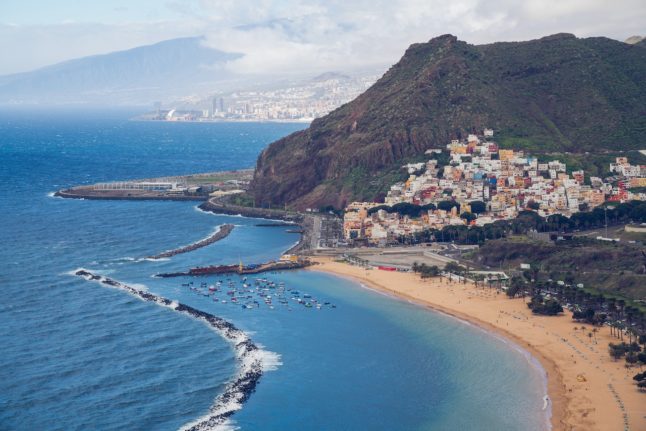The Canary Islands Regional Ministry of Tourism and Employment is set to draft and potentially pass a law that will regulate tourist rentals and provide a legal basis for the holiday accommodation sector on the distant Atlantic archipelago.
Jéssica de León, the minister with the tourism brief, explained in the regional parliament that the initiative is designed not only to deal with aspects of the region’s tourism model, but also housing, land use planning, the environment and consumer protection.
De León appeared to explain the current situation of the holiday rental regulations on the islands, a phenomenon which she stressed has experienced “a notable take-off in supply” in recent years.
Holiday rental properties represent a staggering 33 percent of the accommodation supply on the Canary Islands, with more than 42,000 homes and 179,000 beds, according to data from the National Statistics Institute (INE) for 2023.
That makes it the fourth region in Spain in terms of holiday units, following Andalusia, Valencia and Catalonia. In percentage terms, the islands are higher still in the rankings.
READ ALSO: Which cities in Spain have new restrictions on tourist rentals?
“These figures make the Canary Islands the second autonomous community with the highest percentage of tourist housing in Spain, only behind the Balearic Islands,” said De León, who expressed her concern about the growth that has occurred in municipalities such as La Oliva (Fuerteventura) or Yaiza (Lanzarote), where 30.78 percent and 17.68 percent of homes there are for tourist use, respectively.
The rise in holiday rentals has strained the residential market and priced out many locals who are struggling to find a place to rent long-term for a decent price.
Rents have gone up by 86 percent in the last decade and yet people in the Canary Islands have the lowest wages in Spain together with workers in Extremadura.
“Our sustainability, the protection of the urban living, the right to decent housing, the quality of life of citizens and employment in the tourism sector are all at stake and we can no longer look the other way,” De León concluded.
Technically speaking, the archipelago’s holiday lets are regulated by a law that is more than eight years old (Decree 113/2015).
However, De León said the scope of these regulations is “very limited” and their effectiveness has been watered down by several subsequent rulings. It includes no limits on the amount of holiday lets, no official register of all these properties on record nor any categorisation criteria.
In addition, De León argued the 2015 decree did not contemplate any planning, – neither tourism, nor urban, nor territorial – and the conditions it imposed were “minimum”.
“They were useful at the time, but in 2023 they have become obsolete and do not respond to the demands of a society that demands changes and defends a tourism model that moves increasingly towards sustainability”, stressed De León in the parliament.
New legislation, therefore, seems very likely to regulate the holiday rental decree, but will likely be more wide-reaching and manage the tourist use of housing as a whole on the islands.
The regulations would make the Canary Islands the second region in Spain to regulate tourist accommodation by law, after the Balearic Islands.
Around 2 million people live in the Canary archipelago, mainly on the two biggest islands of Tenerife and Gran Canaria.
They are some of the most densely populated places in Spain, and with little land available and foreigners buying up around a third of homes in the region currently, property prices are kept high – whether it’s to rent or buy – and stock remains low.
READ ALSO: Will Spain’s Canary Islands limit sale of properties to foreigners?



 Please whitelist us to continue reading.
Please whitelist us to continue reading.
Member comments